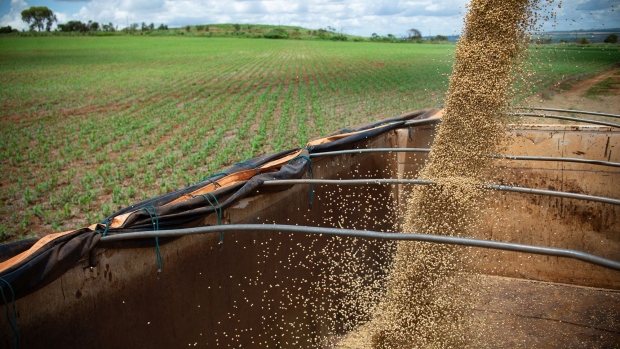May 18, 2022
Top fertilizer maker CF Industries sees two years of high prices
, Bloomberg News

In more bad news for farmers, a fertilizer that’s key for corn production will remain expensive for at least two years.
That’s according to CF Industries Holdings Inc., the world’s largest nitrogen fertilizer company. Prices have been skyrocketing as the war in Ukraine puts a large portion of the world’s fertilizer supplies at risk, since Russia is major producer. Costs of production are also skyrocketing with inputs like European natural gas rising on a potential fuel crunch. It’s all contributing to worries about food inflation, since fertilizer shortfalls could lead to smaller harvests.
However, CF isn’t seeing farmers shy away from buying in the US just yet, said senior vice president of sales and market development Bert Frost.
“We don’t see demand destruction,” Frost said at a conference in New York on Wednesday. “We see demand deferral.”
If farmers aren’t applying maximum fertilizer, they’re “just not that intelligent,” as crop prices are soaring, he said. If US farmers don’t buy all the nitrogen the company has, the company can ship it elsewhere, he said.


